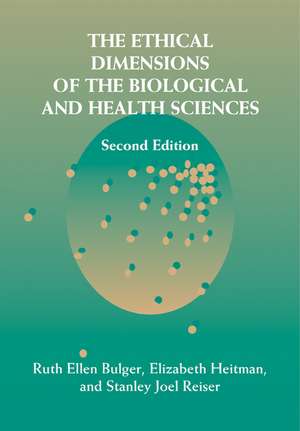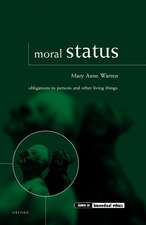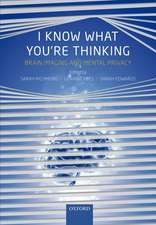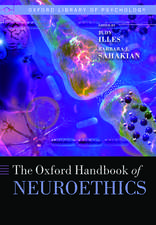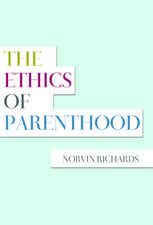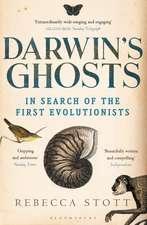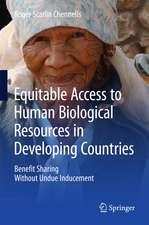The Ethical Dimensions of the Biological and Health Sciences
Editat de Ruth Ellen Bulger, Elizabeth Heitman, Stanley Joel Reiseren Limba Engleză Paperback – 23 iun 2002
| Toate formatele și edițiile | Preț | Express |
|---|---|---|
| Paperback (1) | 345.73 lei 6-8 săpt. | |
| Cambridge University Press – 23 iun 2002 | 345.73 lei 6-8 săpt. | |
| Hardback (1) | 462.82 lei 6-8 săpt. | |
| Cambridge University Press – 10 iul 2002 | 462.82 lei 6-8 săpt. |
Preț: 345.73 lei
Nou
Puncte Express: 519
Preț estimativ în valută:
66.15€ • 69.08$ • 54.63£
66.15€ • 69.08$ • 54.63£
Carte tipărită la comandă
Livrare economică 15-29 aprilie
Preluare comenzi: 021 569.72.76
Specificații
ISBN-13: 9780521008860
ISBN-10: 0521008867
Pagini: 388
Dimensiuni: 176 x 247 x 25 mm
Greutate: 0.64 kg
Ediția:2Revizuită
Editura: Cambridge University Press
Colecția Cambridge University Press
Locul publicării:New York, United States
ISBN-10: 0521008867
Pagini: 388
Dimensiuni: 176 x 247 x 25 mm
Greutate: 0.64 kg
Ediția:2Revizuită
Editura: Cambridge University Press
Colecția Cambridge University Press
Locul publicării:New York, United States
Cuprins
Part I. Introduction to the Study of Ethics in the Biological and Health Sciences: 1. The ethics movement in the biological and health sciences: a new voyage of discovery; Part II. The Roots of Honor and Integrity in Science: 2. The roots of honor and integrity in science: historical themes in the practical ethics of research; 3. The ethical basis of science; 4. Self-deception and gullibility; Part III. The Responsible Conduct of Research: 5. The responsible conduct of biological and health research; 6. The pathogenesis of fraud in medical science; 7. Science, statistics, and deception; 8. Innovation and integrity in medical research; 9. Preventing scientific misconduct; Part IV. The Ethics of Authorship and Publication: 10. Ethical practices in the publication of research results; 11. An ethical code for scientists; 12. Irresponsible authorship and wasteful publication; 13. Reporting provocative results: can we publish 'hot' papers without getting burned? 14. ORI provides working definition of plagiarism; Part V. Research with Human Beings: 15. Research with human beings; 16. The Nuremberg code; 17. The Belmont report: ethical principles and guidelines for the protection of human subjects of research; 18. False hopes and best data: consent to research and the therapeutic misconception; 19. Declaration of Helsinki: ethical principles for medical research involving human subjects; Part VI. Ethics in Epidemiologic Research: 20. Ethical issues in epidemiologic research; 21. Protection of research subjects: do specific rules apply in epidemiology research?; 22. Limitations in the use of race in the study of disease causation; Part VII. The Humane Care and Use of Animals in Research: 23. The humane care and use of animals in research; 24. Beastly conduct: ethical issues in animal experimentation; 25. Recognition and alleviation of pain and distress in laboratory animals; 26. Report of the AVMA panel on euthanasia; Part VIII. Management of and Access to Scientific Data: 27. Ethical issues in data acquisitions, access, and management; 28. Sharing research data; 29. Retention of and access to research data; 30. Guidelines on research data and reports; Part IX. The Work of the Academic Scientist: 31. The work of the academic scientist; 32. Enlarging the perspective; 33. Obstacles to collegiality in the academic health center; 34. Integrity in the education researchers; 35. Administrative case rounds; Part X. The Scientist and Industry: 36. Conflicts of interest and conflicts of commitment; 37. Patenting life: summary, policy issues, and options for congressional action; 38. Looking a gift horse in the mouth: corporate gifts supporting life sciences research; Part XI. The Scientist in Society: 39. The scientist in society: interactions, expectations, and obligations; 40 Asilomar conference on recombinant DNA molecules: summary statement; 41. Scientific basis for the support of biomedical science; 42. Genetics and human malleability; Part XII. Cases for Discussion: 43. Using cases in the study of ethics.
Recenzii
'… the editors have selected high-quality essays, and the discussion questions that follow are uniformly insightful and provocative.' Isis
' … a useful introduction to some of the ethical dilemmas facing research scientists … a stimulating resource for anyone involved in biological research.' The Lancet
'This book will be of great value to all who are responsible for the education of biomedical scientists in the changing world, where the perception of science and scientists has changed.' The Pharos
'This book is a model of organization and content of a graduate course of ethics in the biological sciences. It is highly recommended not only for the personal library of a scientist or scientist-in-training but also for use in graduate ethics course for the biological scientist.' Doody's Health Sciences Book Review Annual
' … a useful introduction to some of the ethical dilemmas facing research scientists … a stimulating resource for anyone involved in biological research.' The Lancet
'This book will be of great value to all who are responsible for the education of biomedical scientists in the changing world, where the perception of science and scientists has changed.' The Pharos
'This book is a model of organization and content of a graduate course of ethics in the biological sciences. It is highly recommended not only for the personal library of a scientist or scientist-in-training but also for use in graduate ethics course for the biological scientist.' Doody's Health Sciences Book Review Annual
Descriere
The second edition of a successful textbook on responsible conduct of biomedical and health science research.
